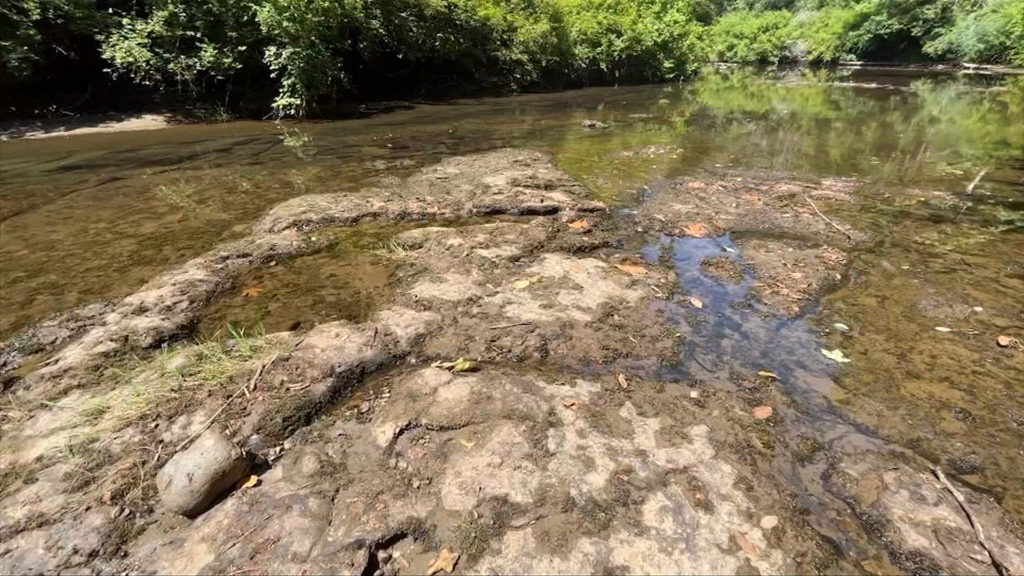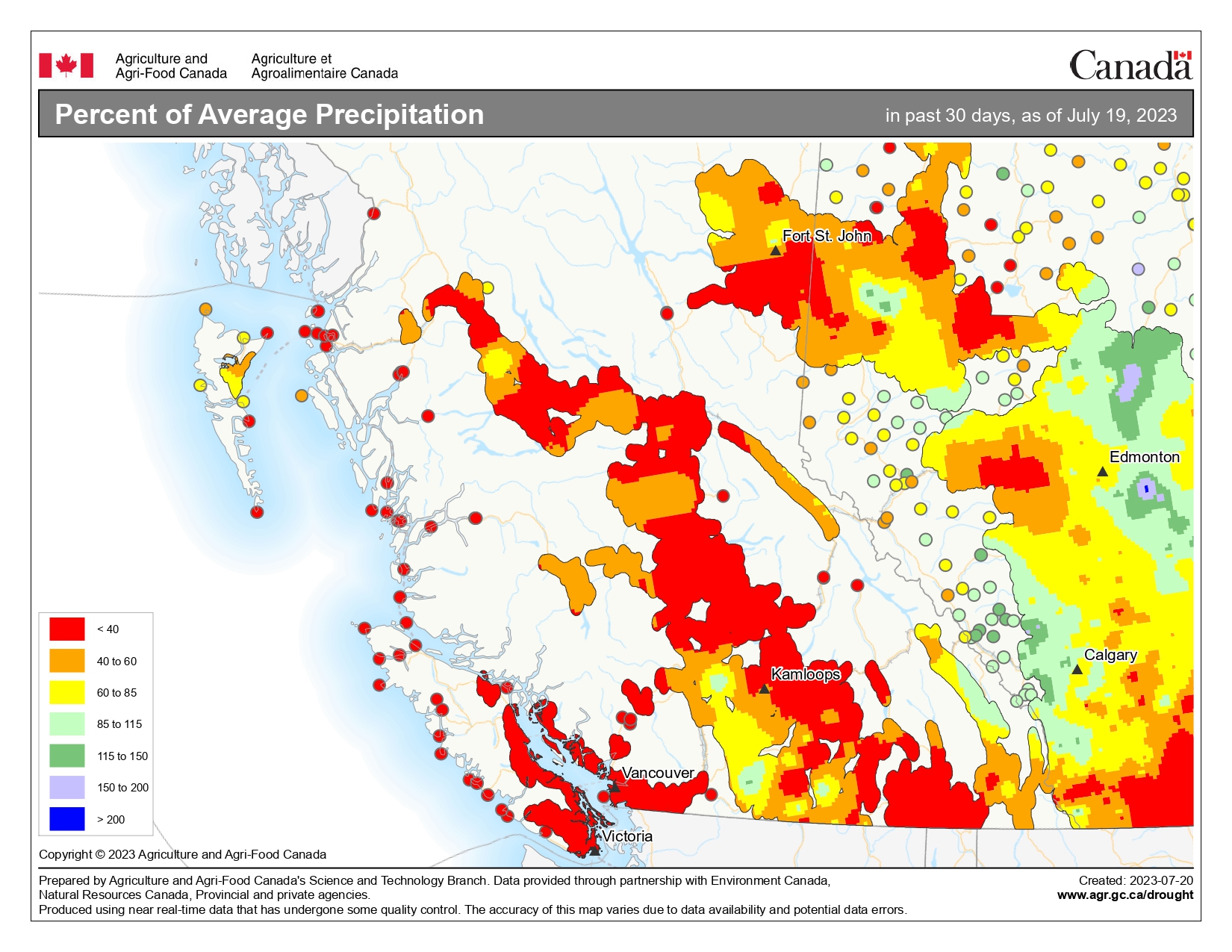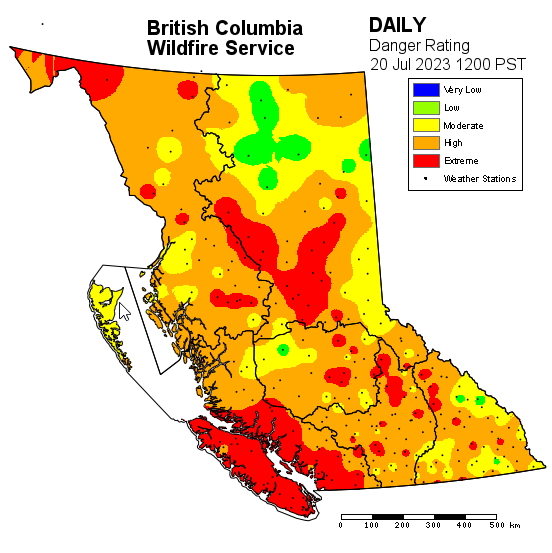
Vancouver Island has been at a level 5 drought since July 13, which is months earlier than in previous years.
In a presentation to media, Dave Campbell, head of the River Forecast Centre, said the Island typically reaches a level 5 drought later in the year.
Showing previous years in half-month increments, Campbell showed that in 2021 the Island was at a level 4 drought on Aug. 15, then level 5 on Sept. 1. Then in 2022 the Island went from a level 3 drought on Sept. 15 to level 5 on Oct. 1.

Campbell says the reason Vancouver Island is so prone to reaching a level 5 drought is due to the lack of a snowpack meaning most rivers and streams rely on rainfall, which has been lacking this year.
Over the last nine month period, Campbell says Vancouver Island has experienced a record low dry spell.
A level 5 drought under the B.C. government’s classification system means that adverse impacts are almost certain. The impacts range from impacts to fish habitats that can result in fish mortalities, infrastructure that pulls water from creeks can be impacted, reduced water availability for ranchers and livestock, and potential issues in water supply for communities.
Over the past 30 days, the Agriculture and Agri-Food Canada average precipitation shows that Vancouver Island has received less than 40 per cent of its average precipitation.
READ PREVIOUS: ‘Conserve water now’: Vancouver Island moved to highest drought level
Story continues below map.

And the wildfire situation across the province continues to pose a challenge.
There are 384 active wildfires across the province.
“We have had 1,234 fires since April 1, which is significantly higher than our 10 year average,” said Cliff Chapman, director of wildfire operations with the BC Wildfire Service.
“We have seen 1.45 million hectares of fire on the landscape since April 1 which is a significant number of fire on the landscape. It’s only July 20. We have a long way to go this fire season and we’re likely to see that number continued to climb.”





